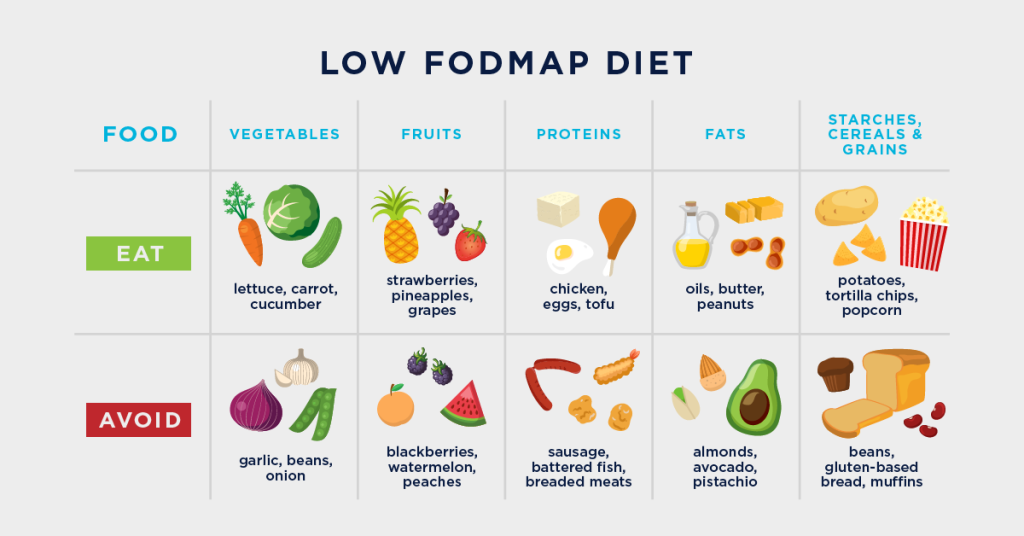Mindful eating for women with irritable bowel syndrome (IBS)

Living with Irritable Bowel Syndrome (IBS) can be challenging, especially for women. The symptoms, which may include abdominal pain, bloating, diarrhea, and constipation, can disrupt daily life and make it difficult to enjoy meals. However, adopting a mindful eating approach can help women with IBS manage their symptoms and improve their overall well-being. In this article, we will explore what mindful eating entails and how it can benefit women with IBS.
Understanding Irritable Bowel Syndrome (IBS)
Irritable Bowel Syndrome is a common gastrointestinal disorder that affects the large intestine. It is estimated that up to 15% of women around the world live with this condition. IBS symptoms can vary from person to person, but they often involve changes in bowel movements and discomfort or pain in the abdominal area. There is no known cure for IBS, but its symptoms can be managed through various approaches, including dietary changes.
The Concept of Mindful Eating
Mindful eating is a practice that involves paying full attention to the experience of eating, without judgment or distraction. It encourages individuals to be present in the moment, engaging their senses and focusing on the taste, texture, and smell of food. Mindful eating promotes a healthier relationship with food, enhancing overall satisfaction and reducing overeating or emotional eating.
For women with IBS, mindfulness can have additional benefits. It allows for a deeper connection with their bodies, helping them recognize and understand specific triggers that may aggravate their symptoms. By being mindful of what and how they eat, women with IBS can determine which foods are more likely to cause discomfort and make informed choices based on their personal experiences.
The Benefits of Mindful Eating for Women with IBS
Mindful eating offers several advantages that can significantly impact the lives of women with IBS. Let’s explore some key benefits:
1. Improved Digestion
Women with IBS often experience digestive issues, which can be triggered or worsened by stress or anxiety. Mindful eating helps reduce stress levels during meals, allowing the body to enter a state of relaxation that promotes better digestion. By focusing on each bite and chewing thoroughly, women with IBS can ease the burden on their digestive system and alleviate symptoms.
2. Enhanced Food Awareness
Practicing mindful eating encourages women with IBS to be more conscious of the foods they consume. By paying attention to how their bodies respond to different foods, they can identify potential triggers and avoid aggravating their symptoms. This heightened awareness empowers them to make well-informed choices and select foods that are less likely to cause discomfort or exacerbate their condition.
3. Reduced Stress and Anxiety
Stress and anxiety can play a significant role in triggering IBS symptoms. Mindful eating promotes relaxation and reduces stress by creating a calm atmosphere during meals. By focusing on the present moment and savoring the flavors and textures of the food, women with IBS can alleviate stress and enjoy their meals without worry, allowing for improved overall well-being.
4. Portion Control
Women with IBS sometimes struggle with portion control, which can lead to uncomfortable symptoms. Mindful eating encourages a better understanding of hunger cues and satiety, helping individuals recognize when they are truly satisfied. This awareness allows them to consume appropriate portion sizes, preventing overeating and potential IBS flare-ups.
Tips for Practicing Mindful Eating with IBS
Getting started with mindful eating may seem daunting, but incorporating some simple practices into daily life can be highly beneficial for women with IBS. Here are a few tips to promote mindful eating:
1. Eat in a calm environment
Find a peaceful setting free from distractions, such as electronics or work-related activities. Create a serene atmosphere that allows you to focus solely on your meal and the sensory experience it offers.
2. Chew thoroughly
Take your time to thoroughly chew each bite of food. This not only aids digestion but also allows you to savor the flavors and textures, fully engaging your senses and enhancing the overall enjoyment of your meal.
3. Notice hunger and fullness cues
Pay attention to your body’s hunger and fullness signals. Before eating, assess your hunger level, and during the meal, check in periodically to determine your level of fullness. This awareness helps prevent both overeating and undereating.
4. Identify trigger foods
Keep a food diary to track your meals and any subsequent symptoms. By documenting what you eat and how your body reacts, you can identify patterns and pinpoint trigger foods that exacerbate your IBS symptoms. This knowledge enables you to make informed decisions about your diet.
5. Practice relaxation techniques
Before and after meals, engage in relaxation techniques, such as deep breathing or meditation. This helps combat stress and anxiety, promoting a more relaxed state that benefits digestion and overall well-being.
Conclusion
Mindful eating provides women with Irritable Bowel Syndrome the opportunity to establish a healthier relationship with food and manage their symptoms more effectively. By adopting this approach, women with IBS can improve their digestion, enhance food awareness, reduce stress and anxiety, and regain control over their eating habits. By listening to their bodies and being present during meals, they can empower themselves to make choices that support their well-being and lead to a better quality of life.





